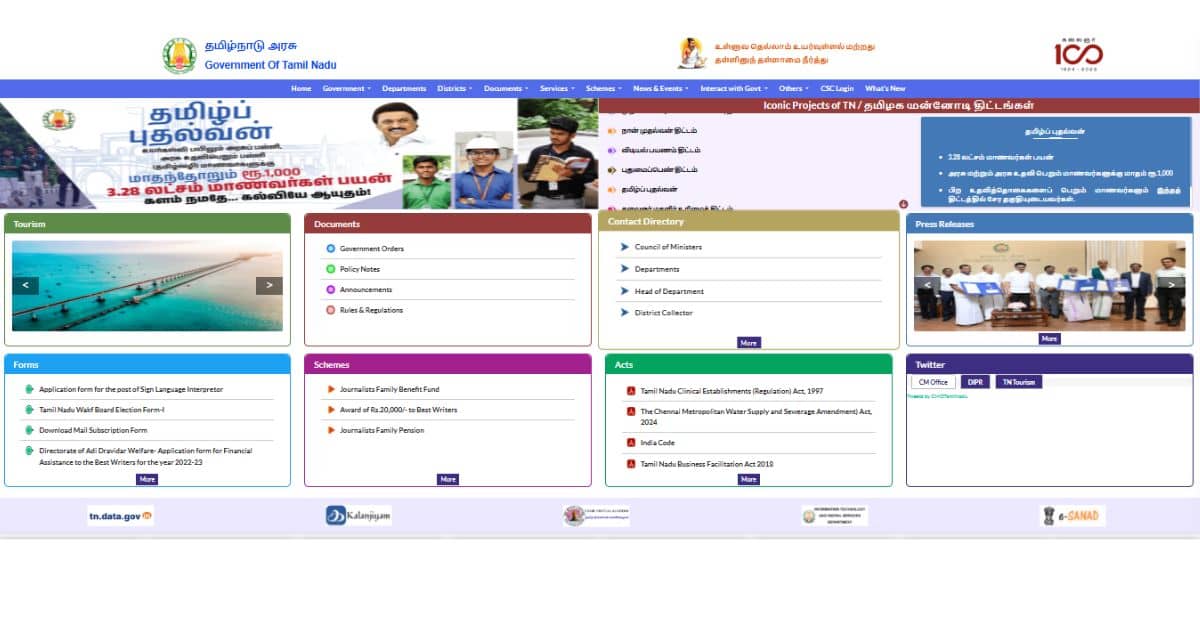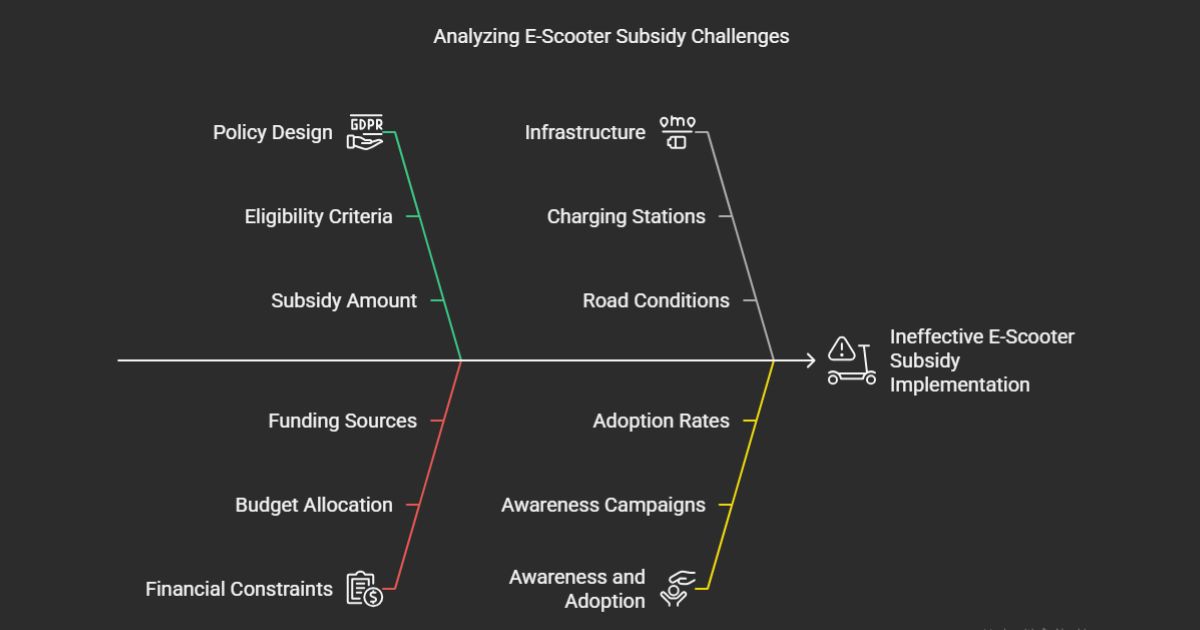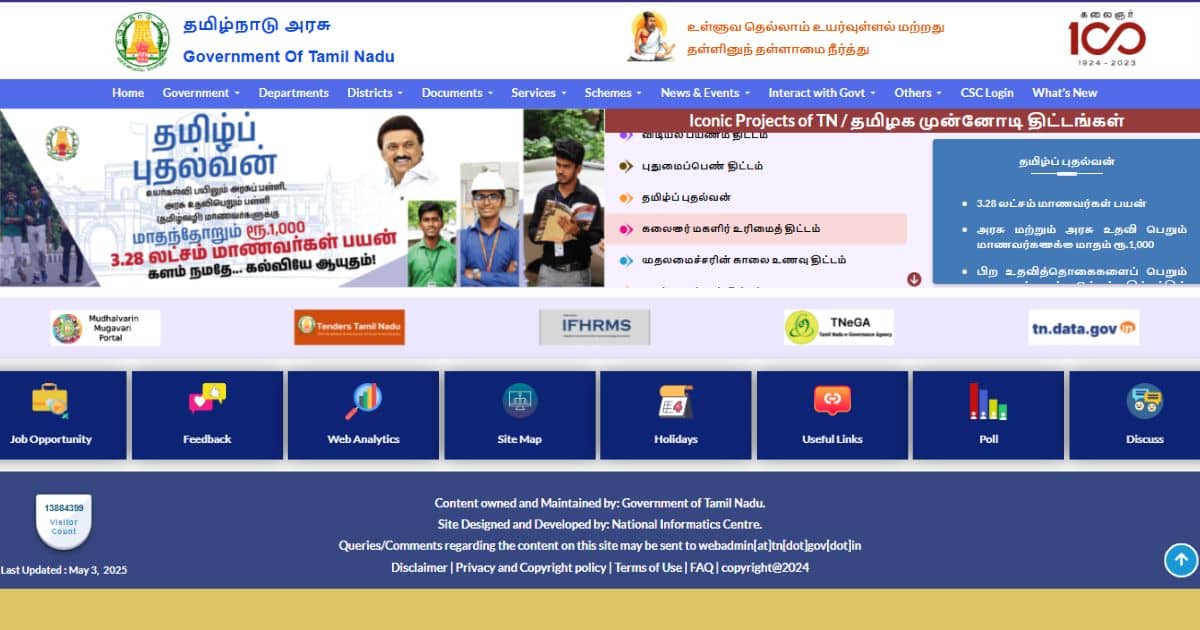E-Scooter Subsidy for Gig Workers – Tamil Nadu is a groundbreaking initiative that underscores the state’s commitment to its gig economy workforce.
The gig economy has revolutionized employment worldwide, with millions embracing flexible, app-based roles such as food delivery, e-commerce logistics, and ride-hailing.
Tamil Nadu, a pioneer in supporting this dynamic workforce, has launched the E-Scooter Subsidy Scheme for Gig Workers as part of its 2025-26 Budget.
This initiative offers a ₹20,000 subsidy to 2,000 internet-based gig workers registered with the Tamil Nadu Platform-Based Gig Workers Welfare Board to purchase electric scooters (e-scooters).
Additionally, the state has introduced a group insurance scheme and plans to establish worker lounges in cities like Chennai and Coimbatore to enhance gig workers’ welfare.
This blog delves into the e-scooter subsidy scheme, its impact on gig workers, its alignment with Tamil Nadu’s electric vehicle (EV) policies, and the potential economic and environmental benefits. We will also explore challenges and opportunities, supported by data in tables for clarity.
The E-Scooter Subsidy Scheme: Key Details
Announced on March 14, 2025, by Tamil Nadu’s Finance Minister Thangam Thenarasu during the 2025-26 Budget presentation, the e-scooter subsidy scheme aims to empower gig workers who rely on two-wheelers for their livelihoods. The initiative promotes sustainable transport, reduces financial burdens, and strengthens social security. Below are the key features:
- Subsidy Amount: ₹20,000 per worker to purchase a new e-scooter.
- Eligibility: Limited to 2,000 internet-based service workers (e.g., those with platforms like Zomato, Swiggy, Zepto, or Blinkit) registered with the Tamil Nadu Platform-Based Gig Workers Welfare Board.
- Objective: To enhance mobility, lower operational costs, and encourage eco-friendly electric vehicle adoption.
- Additional Benefits: A group insurance scheme for approximately 1.5 lakh gig workers to cover accidental death and disability, plus plans for lounges with essential facilities in major cities.
The scheme has garnered positive feedback from stakeholders, including K.C. Gopikumar, head of the Tamil Nadu Food and Allied Products Delivery Workers Union, who urged expanding the subsidy’s reach and improving conditions like paid leave.
E-Scooter Subsidy Scheme Summary

| Aspect | Details |
| Announcement Date | March 14, 2025 |
| Subsidy Amount | ₹20,000 per worker |
| Eligible Beneficiaries | 2,000 gig workers registered with the Gig Workers Welfare Board |
| Purpose | Support livelihood, promote EV adoption, reduce operational costs |
| Additional Initiatives | Group insurance for 1.5 lakh workers, worker lounges in cities |
| Key Stakeholders | Tamil Nadu government, gig workers, e-scooter manufacturers (e.g., Ola, Ather) |
Context: The Gig Economy in Tamil Nadu
India’s gig economy has surged, driven by post-COVID-19 unemployment and the rise of online platforms. Tamil Nadu, a hub for technology and manufacturing, has seen significant growth in gig workers, particularly in urban centers like Chennai and Coimbatore. These workers, often engaged in last-mile delivery, rely heavily on two-wheelers, making the e-scooter subsidy a strategic intervention.
Why E-Scooters?
E-scooters are ideal for gig workers due to their low operating costs, environmental benefits, and maneuverability in congested urban areas. The subsidy reduces the upfront cost of e-scooters, making them more accessible for workers with tight budgets. For example, the Bajaj Chetak 2903, priced at ₹95,998 (ex-showroom), could be purchased for around ₹76,000 post-subsidy, comparable to a conventional Honda Activa or TVS Jupiter.
E-Scooter Price Comparison (Ex-Showroom)
| E-Scooter Model | Original Price (₹) | Price After Subsidy (₹) | Key Features |
| Bajaj Chetak 2903 | 95,998 | 75,998 | 123 km range, 3.2 kWh battery |
| Ola S1 Air | 79,999 | 59,999 | 101 km range, 2.7 kWh battery |
| Ather 450S | 99,999 | 79,999 | 115 km range, 2.9 kWh battery |
| TVS iQube | 94,999 | 74,999 | 100 km range, 3.4 kWh battery |
Note: Prices are indicative and may vary based on location and additional costs (e.g., registration, insurance).
Tamil Nadu’s Broader EV Policy Framework
The e-scooter subsidy scheme aligns with Tamil Nadu’s Electric Vehicles Policy 2023, which positions the state as a leader in EV adoption and manufacturing. The policy offers incentives for manufacturers, customers, and charging infrastructure providers, with investments of ₹24,000 crore and potential for 48,000 jobs in the EV sector.
Key Features of the Tamil Nadu EV Policy 2023
- Customer Incentives: Exemptions on road tax, registration charges, and permit fees for EVs.
- Manufacturer Support: 100% reimbursement of state goods and services tax (SGST), investment-based subsidies, and advanced chemistry cell subsidies.
- Charging Infrastructure: 25% subsidy on equipment costs for public charging stations and the first 50 private charging stations, plus subsidies for 200 public battery swapping stations.
- Electricity Tax Exemption: 100% exemption on electricity tax for five years for EV projects.
- Employment Incentives: Reimbursement of employer’s EPF contributions for new jobs created, with special training subsidies for women, transgender employees, and SC/ST communities.
The gig worker subsidy complements these efforts by targeting a key demographic for urban mobility and sustainability. By promoting e-scooter use, Tamil Nadu reduces carbon emissions and supports its vision of making cities like Chennai and Coimbatore e-mobility hubs.
Incentives Under Tamil Nadu EV Policy 2023
| Category | Incentive |
| Customer | 100% exemption on road tax, registration, and permit fees |
| Manufacturer | 100% SGST reimbursement, investment-based subsidies |
| Charging Infrastructure | 25% subsidy on equipment costs, up to ₹10 lakh for private stations |
| Employment | EPF reimbursement (up to ₹48,000/employee), training subsidies (₹4,000–₹6,000) |
| Electricity | 100% exemption on electricity tax for 5 years |
Economic and Environmental Impacts
Economic Benefits
- Cost Savings for Gig Workers: The ₹20,000 subsidy lowers e-scooter costs, easing financial strain. E-scooters also have lower running costs (electricity vs. petrol) and minimal maintenance compared to ICE vehicles.
- Boost to EV Manufacturers: Companies like Ola, Ather, Bajaj, and TVS benefit from increased e-scooter demand. Analysts suggest the subsidy may spur manufacturers to develop budget-friendly models for gig workers.
- Job Creation: The EV policy and subsidy scheme support jobs in manufacturing, charging infrastructure, and related sectors. Seven new Industrial Training Institutes (ITIs) for construction workers’ children further enhance skill development.
Environmental Benefits
- Reduced Emissions: E-scooters produce zero tailpipe emissions, improving air quality in cities like Chennai, where pollution worsens health issues during summer.
- Sustainable Transport: Encouraging EV adoption among gig workers aligns with global sustainability goals and reduces fossil fuel dependence.
- Green Infrastructure: Investments in charging and battery swapping stations ensure reliable infrastructure, promoting broader EV use.
Economic and Environmental Impact of the Subsidy Scheme
| Impact Type | Details |
| Economic | – Cost savings for gig workers
– Increased demand for e-scooters – Job creation in EV sector |
| Environmental | – Zero tailpipe emissions
– Reduced fossil fuel reliance – Support for charging infrastructure |
| Long-Term Benefits | – Improved worker livelihoods
– Cleaner urban air – Sustainable transport ecosystem |
Challenges and Opportunities

Challenges
The scheme’s limited reach poses a significant challenge, as it covers only 2,000 of Tamil Nadu’s estimated 1.5 lakh gig workers. Union leaders like K.C. Gopikumar has called for broader coverage to ensure more workers benefit from the subsidy, highlighting the need for inclusivity in addressing the gig economy’s scale.
Charging infrastructure remains another hurdle. Despite incentives in the EV policy, the current network of charging stations may be insufficient, particularly in semi-urban and rural areas. This could limit the practicality of e-scooter adoption for gig workers operating outside major cities.
Awareness and accessibility also present obstacles. Many gig workers may face difficulties navigating the registration process with the Tamil Nadu Platform-Based Gig Workers Welfare Board or accessing clear information about the subsidy, potentially excluding eligible beneficiaries due to bureaucratic or informational barriers.
Financial constraints further complicate the scheme’s impact. Even with the ₹20,000 subsidy, e-scooters priced between ₹60,000 and ₹80,000 post-subsidy may still be unaffordable for some workers, especially without accessible financing options to bridge the cost gap.
Opportunities
The scheme offers significant potential for scalability. A successful pilot could pave the way for expansion, allowing more gig workers to benefit and further accelerating EV adoption across Tamil Nadu. This could strengthen the state’s position as a leader in sustainable transport.
Public-private partnerships present a promising avenue for enhancing the scheme’s effectiveness. Collaboration with e-scooter manufacturers and delivery platforms like Swiggy or Zomato could streamline subsidy distribution and introduce financing options, making e-scooters more accessible to gig workers.
Tamil Nadu’s initiative could serve as a model for other states, inspiring similar programs to support gig workers and sustainable transport. By complementing central schemes like the e-Shram portal, the state’s approach could contribute to a national framework for gig worker welfare and green mobility.
The scheme’s holistic approach, incorporating group insurance and worker lounges, addresses broader gig worker needs. These measures could improve job satisfaction and retention in the gig economy, fostering a more stable and supported workforce.
Comparison with Other Schemes
Tamil Nadu’s Amma Two-Wheeler Scheme offers a 50% subsidy (up to ₹25,000) for working women to buy scooters. Unlike the Amma scheme, the e-scooter subsidy targets gig workers and focuses on EVs, aligning with environmental goals. However, the Amma scheme’s broader eligibility and higher subsidy suggest potential for expanding the gig worker scheme.
Comparison of E-Scooter Subsidy Scheme and Amma Two-Wheeler Scheme
| Feature | E-Scooter Subsidy Scheme | Amma Two-Wheeler Scheme |
| Target Group | Gig workers (internet-based, registered with Welfare Board) | Working women (organized/unorganized sectors) |
| Subsidy Amount | ₹20,000 | Up to ₹25,000 (50% of vehicle cost) |
| Vehicle Type | Electric scooters only | Any two-wheeler (ICE or EV) |
| Eligibility | 2,000 workers | Broader eligibility (e.g., women commuting long distances) |
| Objective | Promote EV adoption, support gig worker livelihoods | Empower women, improve mobility |
Implementation and Next Steps
The Tamil Nadu government has allocated ₹1,975 crore for the Labour Welfare and Skill Development Department in the 2025-26 Budget, covering the e-scooter subsidy, insurance, and lounges. Details on the scheme’s implementation, such as the application process and timeline, are pending. Labour Secretary Veera Raghava Rao stated that further information will be released soon.
Proposed Implementation Framework
- Registration: Gig workers register with the Tamil Nadu Platform-Based Gig Workers Welfare Board via an online portal or designated offices.
- Application Process: Workers submit proof of employment (e.g., platform registration) and identity documents.
- Verification: The Welfare Board verifies eligibility and issues subsidy vouchers or direct transfers.
- Purchase: Workers use the subsidy to buy e-scooters from authorized dealers, with manufacturers potentially offering discounts.
- Monitoring: The government tracks the scheme’s impact on EV adoption, worker livelihoods, and environmental outcomes.
Key Learnings
The Tamil Nadu E-Scooter Subsidy Scheme for Gig Workers is a forward-thinking initiative that supports gig worker livelihoods while promoting sustainable transport. By offering a ₹20,000 subsidy to 2,000 workers, alongside insurance and lounges, the state is strengthening the gig economy. The scheme aligns with Tamil Nadu’s EV policy, positioning the state as a leader in electric mobility and green infrastructure.
Despite challenges like limited reach and infrastructure gaps, the scheme’s potential to improve mobility, reduce emissions, and boost the EV industry is significant.
Addressing these challenges through scalability, partnerships, and robust implementation can make Tamil Nadu a model for other states. As the gig economy grows, such initiatives underscore the importance of inclusive policies that prioritize economic and environmental sustainability.
Please do visit our website: sarkariyojnamagazine.com , sarkari yojana magazine for more updates and detailed resources on this scheme and other Tamil Nadu initiatives.
